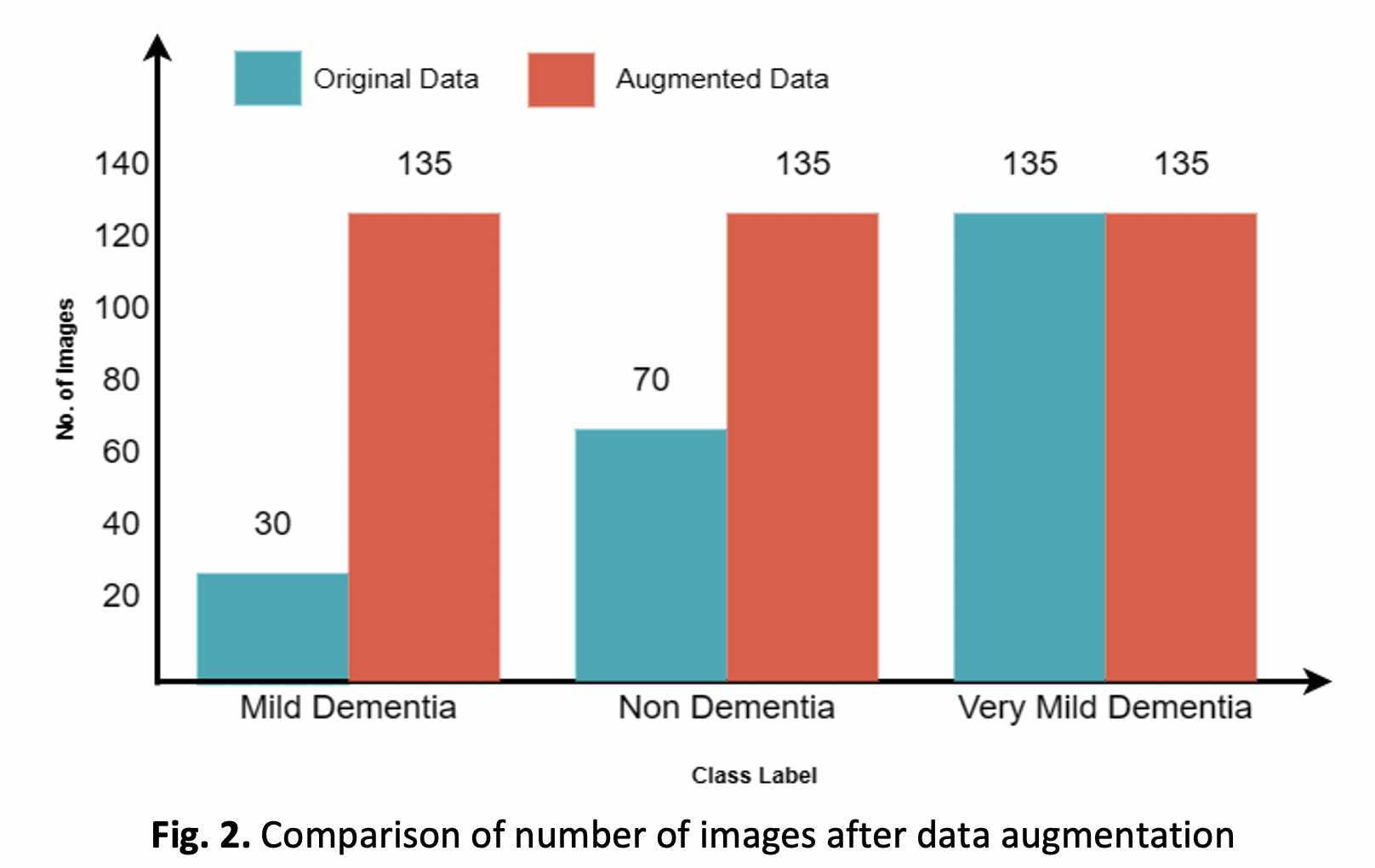Deep Learning Techniques in Classification of Stages in Dementia: An Ensemble Approach
DOI:
https://doi.org/10.37934/araset.36.1.131146Keywords:
Dementia, Contrast limited adaptive histogram equalization, Transfer learning, Ensemble classifier modelsAbstract
Dementia is the severe brain disease that affects the memory system of the humans which requires early diagnosis. It progresses through different stages from very mild dementia, which motivates to find the stage of dementia for treating the affected persons. A novel ensemble-based classification model to classify the stages in dementia such as mild-dementia, non-dementia, very-mild dementia has been proposed in this work. The MRI images were pre-processed with techniques such as resizing, data augmentation and Contrast Limited Adaptive Histogram Equalization (CLAHE) and different four forms of datasets such as Image Data-1, Image Data-2, Image Data-3, Image Data-4 are framed to justify preprocessing techniques. The pre-trained models namely ResNet, Inception, MobileNet, VGG, DenseNet, Xception, Inception Resnet, AlexNet, EfficientNet and NasNet Mobile are trained with all four forms of dataset and performance of each model is analysed. The models DenseNet201, MobileNetV2, VGG19, ResNet152 achieved accuracy of 93%,93%,93%.90% respectively with Image Data-4. The proposed model is the ensemble of DenseNet201, MobileNetV2, VGG19, ResNet152 which provides accuracy precision, recall and f1-score of 95%, 93%, 100% and 96% respectively. This ensemble model has undergone testing using a brain tumour dataset, and the experimental findings indicate that the proposed framework enhances the classifier's generalization capabilities for multiclass problems.
Downloads





























